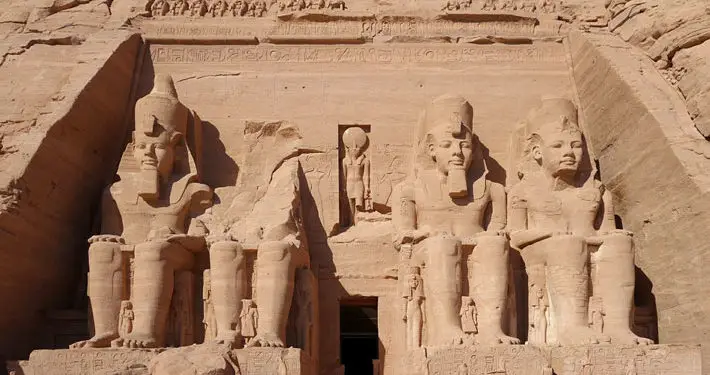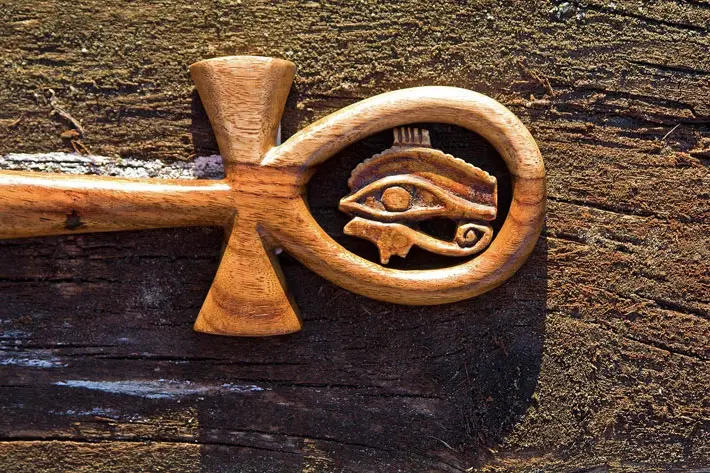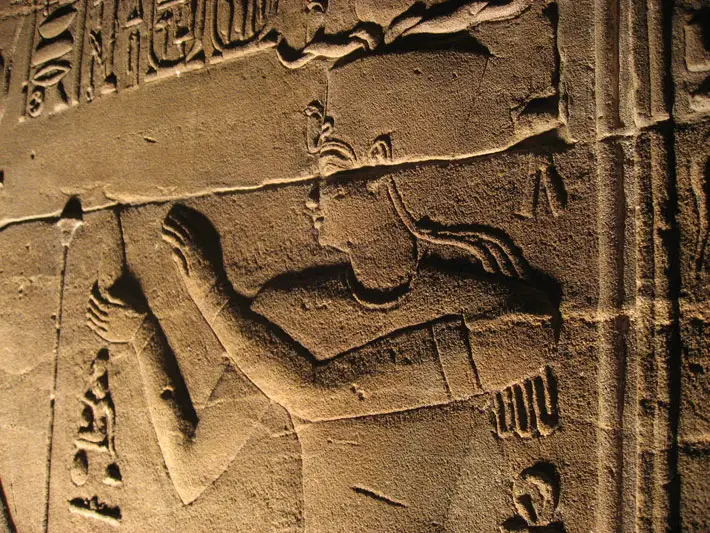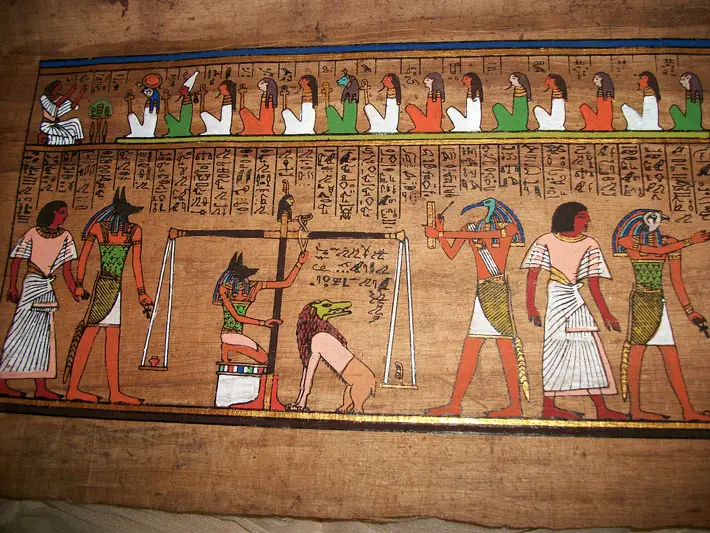Gods and Goddesses Galore: A Brief History of Egyptian Mythology

It’s safe to say that most of us are familiar with gods and goddesses like Zeus and Aphrodite, but did you know that the Greco-Roman goddess Aphrodite was first identified as the benevolent Egyptian goddess Isis? At the time of her adoration, Isis’ following spanned as far west at Great Britain.
Tales of Egyptian gods have been passed down through generations. Burial practices and tomb paintings show us that Egyptian mythology shaped a culture and belief system for the ancient society, dating all the way back to at least 4000 BCE. If you were to visit the ancient tombs of Giza, for example, you would be sure to find Isis, among other gods, depicted on the walls.
Top Tip: Should you want to get a closer look at these paintings before your visit, the virtual reality game, Genesis in New Cairo, will place you in the tombs. If that’s not enough, maybe you’d like to play one of the other Egypt-themed games? Personally, I’d recommend the 90’s classic, Tomb Raider.
A Brief Introduction to Egyptian Mythology
The story begins with an endless ocean. Eventually it produced a prehistoric hill on which stood the great god, Atum. He looked upon the water and saw just how meaningless it was, so he mated with his own shadow and produced a son.
Atum spat out Shu, the god of air, and vomited out his daughter, Tefnut, the goddess of moisture. Shu provided the planet with life, while Tefnut gave our world structure. However, they couldn’t have done this all in just one day. When Shu and Tefnut left their father on the primordial hill and journeyed the vast planet, they weren’t planning a simple holiday. They were hustling to establish the world that would eventually come to be known by the ancient Egyptians.
Atum became increasingly worried that his children would never return. He scooped out his eye and sent it to search for them. Shu and Tefnut returned with the eye that became known as the Eye of Ra. Overjoyed to have his children with him again, Atum wept tears of joy that landed on the fertile hill. From the mingling of these tears and the soil, men and women were born.
Concerned that these people had nowhere to live, Shu and Tefnut mated and produced Geb (god of the Earth) and Nut (goddess of the sky). These siblings fell in love. The great god Atum, however, would not stand for it. He separated Nut from Geb, condemning her high into the heavens.
Atum did not act swiftly enough, however. Nut was already pregnant and gave birth to the five gods and goddesses often described as the earliest deities in Egyptian society: Osiris, Isis, Seth, Nephthys and Horus.
Egyptian Gods and Goddesses
Perhaps the most significant goddess of Egypt is Isis, whose legacy was one of the last to be worshipped out of all the ancient Egyptian gods and goddesses. She acted as a dedicated wife to Osiris, thoughtful and judicious King of Egypt.
Osiris met an unfortunate fate when he was murdered and dismembered by his brother, Seth, who desired absolute rule over upper and lower Egypt. In death, Osiris became god of the underworld. Unable to accept the death of her husband, Isis set out to find each part of his dismembered body so she could reassemble and revive him.
Isis successfully resurrected Osiris and later gave birth to their son, Horus. Her maternal care extended to the souls of the dead, as she was wife to the god of the underworld.
Life after death
Ancient Egyptians did not view life as ending in death. According to one historian, “Eternity was the common destination of each man, woman and child in Egypt. Such a belief infused the vision of the people… and gave them a certain exuberance for life unmatched anywhere in the ancient world”. One bit of literature was most sought after by Egyptian society was the Book of the Dead.
The book, known to ancient Egyptians as the Spells of Going Forth by Day, acted as a manual for elite spirits. It outlined how one should conduct themselves in the afterlife, and gave the soul the best chance of reaching the Field of Reeds, or paradise.
While reposing in the Field of Reeds for eternity sounds lovely, there’s so much cheer to be experienced here on Earth. Though some of the gods and goddesses had a rough go at life, they provided unending guidance to ancient Egyptians. This complete list of Egyptian gods can furnish a more detailed look into the lives of the mythological deities that shaped ancient Egyptian society.












